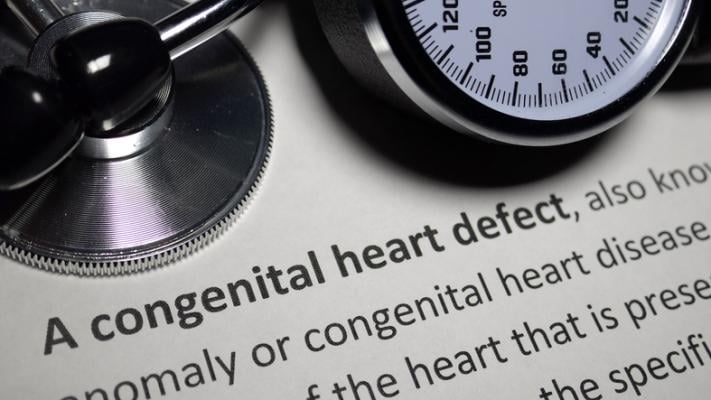
Getty Images
July 6, 2022 — A team of investigators from Texas Heart Institute, Texas Children’s Hospital and Baylor College of Medicine uncovered new insights into the mechanisms underlying the progression of congenital heart disease (CHD) ― a spectrum of heart defects that develop before birth and remain the leading cause of childhood death.
The research published in Nature represents the first reported single-cell genomics evidence of unique differences in heart muscle cells and immune systems of CHD patients. Uncovering these key differences and how these diseases progress provides an opening for researchers to devise new ways to treat CHD.
While the eventual outcome of heart failure in CHD is well documented, the underlying cause of declining heart function in these patients is still poorly understood. That knowledge gap in understanding has led to roadblocks in developing new therapies capable of extending a patient’s life.
To address these unanswered questions, Texas Heart Institute and Baylor College of Medicine’s James F. Martin, MD, PhD, collaborated with Iki Adachi, MD, Director of the Mechanical Circulatory Support Program at Texas Children’s and Associate Professor at Baylor College of Medicine, and Diwakar Turaga, MD, PhD, a Texas Children’s Hospital pediatric cardiac critical care specialist and Assistant Professor at Baylor College of Medicine, to profile heart and blood samples from CHD patients. The team studied patients with hypoplastic left heart syndrome (HLHS), Tetralogy of Fallot (TOF) and dilated (DCM) and hypertrophic (HCM) cardiomyopathies undergoing heart surgery.
Dr. Martin is an internationally recognized physician-scientist who has made numerous fundamental contributions to our understanding of cardiac developmental and disease pathways, as well as tissue regeneration.
“Using several exciting new technologies such as single-cell RNA sequencing, we were able to interrogate samples from congenital heart disease patients at the single cell level. One of our goals is to improve the natural history of this terrible disease afflicting children,” said Dr. Martin, Director of the Cardiomyocyte Renewal Laboratory at the Texas Heart Institute and Vivian L. Smith Professor in the Department of Integrative Physiology at Baylor College of Medicine. “There is still a lot of work to do as the team, including co-first authors Drs. Matthew C. Hill, Zachary A. Kadow and Hali Long, heads toward that goal.”
Dr. Turaga is a physician-scientist dedicated to bringing cardiac regenerative medicine therapies to the bedside.
“This is the first step in developing a comprehensive cell atlas of congenital heart disease,” said Dr. Turaga, physician in the Cardiac Intensive Care Unit at Texas Children’s, as well as an expert in genomics and microscopy. “We are creating a roadmap for therapies targeting individual cell types and unique gene pathways in CHD that include both the heart and the immune system, something that had not been reported before. As the technology matures, this will become the standard of care in treatment of CHD.”
Dr. Adachi is a congenital heart surgeon at Texas Children’s Hospital who is specialized in reconstructive surgical procedures of CHD lesions including those analyzed in this study.
“What we achieved with this study is absolutely exciting but represents just the beginning,” said Dr. Adachi, director of the world’s largest pediatric Heart Transplant and Ventricular Assist Device Program. “The collaboration between the extremely sophisticated laboratory at the Texas Heart Institute and the top pediatric heart center at Texas Children’s definitely has the potential to go further.”
The findings of the study not only provide a new roadmap to develop personalized treatments for CHDs, but also provide the scientific community with a critical resource of rare pediatric heart samples that can be used to make further discoveries and deepen our understanding of CHD.
For more information: https://www.texasheart.org


 February 03, 2026
February 03, 2026 









